The art of underdevelopment: How to decolonise Africa economically
Book : How Europe Underdeveloped Africa
Author: Walter Rodney
Extract of Chapter 1.2: What is Underdevelopment?
Having discussed ‘development’, it makes it easier to comprehend the concept of underdevelopment. Obviously, underdevelopment is not the absence of development, because every people have developed in one way or another and to a greater or lesser extent...

Walter Rodney - the author
Underdevelopment makes sense only as a means of comparing levels of development. It is very much tied to the fact that human social development has been uneven and from a strictly economic view-point some human groups have advanced further by producing more and becoming more wealthy. The moment that one group appears to be wealthier than others, some enquiry is bound to take place as to the reason for the difference.
After Britain had begun to move ahead of the rest of Europe in the 18th century, the famous British economist Adam Smith felt it necessary to look into the causes behind the ‘Wealth of Nations’. At the same time, many Russians were very concerned about the fact that their country was ‘backward’ in comparison with England, France and Germany in the 18th century and subsequently in the 19th century.
Today, our main pre-occupation is with the differences in wealth between on the one hand Europe and North America and on the other hand Africa, Asia and Latin America.
In comparison with the first, the second group can be said to be backward or underdeveloped. At all times, therefore, one of the ideas behind underdevelopment is a comparative one. It is possible to compare the economic conditions at two different periods for the same country and determine whether or not it had developed; and (more importantly) it is possible to compare the economies of any two countries or sets of countries at any given period in time.
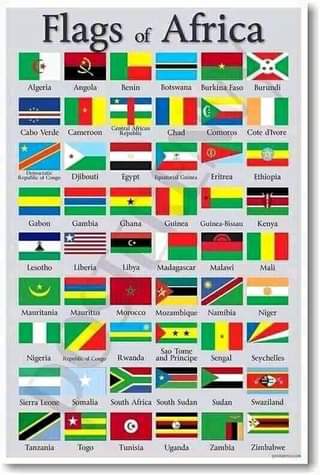
A second and even more indispensable component of modern underdevelopment is that it expresses a particular relationship of exploitation: namely, the exploitation of one country by another. All of the countries named as ‘underdeveloped’ in the world are exploited by others; and the underdevelopment with which the world is now pre-occupied is a product of capitalist, imperialist and colonialist exploitation.
African and Asian societies were developing independently until they were taken over directly or indirectly by the capitalist powers. When that happened, exploitation increased and the export of surplus ensued, depriving the societies of the benefit of their natural resources and labour.
That is an integral part of underdevelopment in the contemporary sense. In some quarters, it has often been thought wise to substitute the term ‘developing’ for ‘underdeveloped’. One of the reasons for so doing is to avoid any unpleasantness which may be attached to the second term, which might be interpreted as meaning underdeveloped mentally, physically, morally or in any other respect.
Actually, if ‘underdevelopment’ were related to anything other than comparing economies, then the most underdeveloped country in the world would be the U.S.A, which practices external oppression on a massive scale, while internally there is a blend of exploitation, brutality, and psychiatric disorder.
However, on the economic level, it is best to remain with the word ‘underdeveloped’ rather than ‘developing’, because the latter creates the impression that all the countries of Africa, Asia and Latin America are escaping from a state of economic backwardness relative to the industrial nations of the world, and that they are emancipating themselves from the relationship of exploitation. That is certainly not true, and many underdeveloped countries in Africa and elsewhere are becoming more underdeveloped in comparison with the world’s great powers, because their exploitation by the metropoles is being intensified in new ways.

Economic comparisons can be made by looking at statistical tables or indices of what goods and services are produced and used in the societies under discussion. Professional economists speak of the National Income of countries and the National Income per capita (per person).
These phrases have already become part of the layman’s language, by way of the newspapers and no detailed explanation will be offered here. It is enough to note that the National Income is a measurement of the total wealth of the country, while the per capita income is a figure obtained by dividing the National Income by the number of inhabitants in order to get an idea of the ‘average’ wealth of each inhabitant.
This ‘average’ can be misleading where there are great extremes of wealth. A young Ugandan put it in a very personal form when he said that the per capita income of his country camouflaged the fantastic difference between what was earned by his poor peasant father and what was earned by the biggest local capitalist, Madhvani.
In considering the question of development away from the state of underdevelopment, it is of supreme importance to realise that such a process demands the removal of the gross inequalities of land distribution, property holding and income, which are camouflaged behind national income figures.
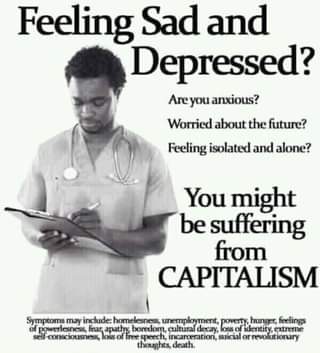
At one stage in history, advance was made at the cost of entrenching privileged groups. In our times, development has to mean advance which reconciles present privileged groups with their corresponding unprivileged groups. Nevertheless, the per capita income is a useful statistic for comparing one country with another; and the developed countries all have per capita incomes several times higher than any one of the recently independent African nations.
The following table gives a clear picture of the gap between Africa and certain nations measured in per capita incomes. It is the gap that allows one group to be called ‘developed’ and another ‘underdeveloped’.
(The information is obtained from United Nations statistical publications, and applies to the year 1968 unless otherwise stated.)
| Countries Per Capita income in U.S. dollars. | |
| Canada | 2,247 |
| U.S.A. | 3,578 |
| France (1967) | 1,738 |
| United Kingdom (1967) | 1,560 |
| AFRICA as a whole (1965) | 1,400 |
| Congo | 52 |
| Ghana | 198 |
| Kenya | 107 |
| Malawi | 52 |
| Morocco | 185 |
| South Africa | 543 |
| Tanzania | 62 |
| U.A.R. | 156 |
| Zambia | 225 |
The gap that can be seen from the above evidence is not only great, but it is also increasing. Many people have come to realise that the developed countries are growing richer quite rapidly, while underdeveloped countries for the most part show stagnancy or slow rates of growth. In each country, a figure can be calculated to represent the rate at which the economy grows.
The growth rate is highest in Socialist countries, followed by the big capitalist countries, and with the colonies and ex-colonies trailing far behind. The proportion of international trade which is in the hands of the underdeveloped countries is declining. That proportion was roughly 30% in 1938 and went down to less than 20% in the 1960’s. This is an important indicator because trade is both a reflection of the quantity of goods produced and a way of obtaining goods not locally produced.
So called developed economies have certain characteristics which contrast with underdeveloped ones. The developed countries are all industrialized. That is to say, the greater part of their working population is engaged in industry rather than agriculture, and most of their wealth comes out of mines, factories, etc.
They have a high output of labour per man in industry because of their advanced technology and skills. This is well known, but it is also striking that the developed countries have a much more advanced agriculture than the rest of the world. Their agriculture has already become an industry, and the agricultural part of the economy produces more although it is small.

The countries of Africa, Asia and Latin America are called agricultural countries because they rely on agriculture and have little or no industry: but their agriculture is unscientific and the yields are far less than those of the developed countries.
In several of the largest underdeveloped nations, there was stagnation and fall in agricultural output in and after 1966. In Africa, the output of food per person has been falling in recent years. Because the developed countries have a stronger industrial and agricultural economy than the rest of the world, they produce far more goods than the poor nations - in the category of necessities as well as luxuries.
It is possible to draw up statistical tables showing the production of grain, milk, steel, electric power, paper, and a wide range of other goods; and showing at the same time how much of each commodity is made available to each citizen (on the average). Once again, the figures are highly favourable to a few privileged countries in the world.
The amount of steel used in a country is an excellent indicator of the level of industrialization. At one extreme, one finds that the U.S.A. consumes 685 kg. of steel per person, Sweden 623 kg. and East Germany 437 kg. At the other extreme, one finds that Zambia consumes 10 kg., East Africa 8 kg. and Ethiopia 2 kg.
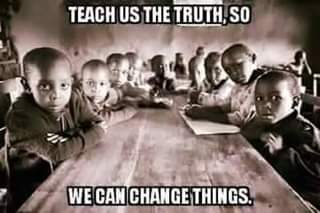
When the same kind of calculation is made for sugar, a sample of the results shows Australia with 57 kg, and North America and the Soviet Union with 45 to 50 kg. on the average. Africa, however, consumes only 10 kg. of sugar per person per year, and this is better than Asia with 7 kg.. An even more gloomy set of statistics relate to basic food requirements. Each individual needs a certain quantity of food per day, measured in calories. The desirable amount is 3,000 calories per day; but no African country comes anywhere near to that figure.
Algerians consume on average only 1,370 calories per day, while Ivory Coast can consider itself very well off within an African context with 2,290 calories as the national average. Furthermore, one also has to judge the protein content of the food; and many parts of Africa suffer from ‘protein famine’ – which means that even when calories are available from starchy foods, little protein is to be found.
Persons in developed capitalist and Socialist countries consume twice as much protein food as those in underdeveloped countries. Such differences help to make it clear which countries are ‘developed’ and which are ‘underdeveloped’.
The social services provided by a country are of importance equal to that of its material production in bringing about human well-being and happiness. It is universally accepted that the state has the responsibility to establish schools and hospitals, but whether these are provided by the government or by private agencies, their numbers can be established in relation to the size of the population.
The extent to which basic goods and social services are available in a country can also be measured indirectly by looking at the life expectancy, the frequency of deaths among children, the amount of malnutrition, the occurrence of diseases which would be prevented by public health services, and the proportion of illiterates.
In all these respects, the comparison between the developed and underdeveloped countries shows huge and even frightening differences. For every 1,000 children who are born alive in Cameroon, 100 never live to see their first birthday, and out of every 1,000 African children born alive in rural Sierra Leone, 160 die before reaching one year.

Yet the comparable figures for the U.K. and Holland are only 12 and 18, respectively. Besides, many more African children die before they reach the age of five. Lack of doctors is a major drawback. In Italy, there is one doctor for every 580 Italians and in Czechoslovakia there is one doctor for every 510 citizens. In Niger, one doctor must do for 56,140 people; in Tunisia, one doctor for every 8,320 Tunisians; and in Chad one doctor for 73,460 persons.
It takes a large number of skilled people to make an industrial economy function; while the countries of Africa have a woefully insufficient number of highly qualified personnel.
The figures on doctors just given confirm this, and the same problem exists with engineers, technicians, agriculturalists and even administrators and lawyers in some places. Middle level skills in fields such as welding are also lacking. To make matters worse, there is at present a ‘brain drain’ from Africa, Asia and Latin America towards North America and Western Europe. This is to say, professionals, technicians, high-level administrators and skilled workers emigrate from their homes, and the small number of skilled people available to the underdeveloped world are further depleted by the lure of better pay and opportunities in the developed world.
The lopsided nature of the present international economy is strikingly brought home by the fact that the underdeveloped countries have in turn to recruit foreign experts at fantastic cost.

Most of the data presented so far can be described as ‘quantitative’. It gives us measurements of the quantity of goods and services produced in various economies. In addition, certain qualitative assessments have to be made concerning the way that a given economy is put together. For economic development it is not enough to produce more goods and services. The country has to produce more of those goods and services which in turn will give rise spontaneously to future growth in the economy.
For example, the food-producing sector must be flourishing so that workers would be healthy, and agriculture on the whole must be efficient so that the profits (or savings) from agriculture would stimulate industry.
Heavy industry, such as the steel industry and the production of electrical power, must be present and efficient so that one is capable of making machinery for other types of industry. It is typical of underdeveloped economies that they do not (or are not allowed to) concentrate on those sectors of the economy which in turn will generate growth and raise production to a new level altogether, and there are very few ties between one sector and another so that (say) agriculture and industry could react beneficially on each other.
Furthermore, whatever savings are made within the economy are mainly sent abroad or are frittered (spend frivolously and unwisely) away in consumption rather than being redirected to productive purposes. Much of the national income which remains within the country goes to pay individuals who are not directly involved in producing wealth but only in rendering auxiliary services - civil servants, merchants, soldiers, entertainers, etc.
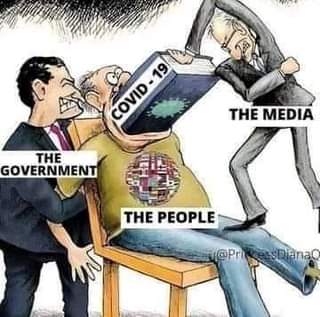
What aggravates the situation is that more people are employed in those jobs than are really necessary to give efficient service; and to crown it all these people do not reinvest in agriculture or industry. They squander the wealth created by the peasants and workers by purchasing cars, whisky and perfume.
It has been noted with irony that the principal ‘industry’ of many underdeveloped countries is administration. Not long ago, 60%, of the internal revenue of Dahomey (Republic of Benin) went into paying salaries of civil servants and government leaders.
The salaries given to the elected politicians is higher than that given to a British Member of Parliament, and the number of parliamentarians in the underdeveloped African countries is also relatively high.
In Gabon, there is one parliamentary representative for every 6,000 inhabitants, compared to one French parliamentary representative for every 100,000 Frenchmen. Many more figures of that sort indicate that in describing a typical underdeveloped economy it is essential to point out the high disproportion of the locally distributed wealth that goes into the pockets of a privileged few.
Members of the privileged groups inside Africa always defend themselves by saying that they pay the taxes which keeps the Government going. At face value this statement sounds reasonable, but on close examination it is really the most absurd argument and shows total ignorance of how the economy functions.

Taxes do not produce national wealth and development. Wealth has to be produced out of nature – from tilling the land or mining metals or felling trees or turning raw materials into finished products for human consumption. These things are done by the vast majority of the population who are peasants and workers.
There would be no incomes to tax if the labouring population did not work. The incomes given to civil servants, professionals, merchants, etc. come from the store of wealth produced by the community. Quite apart from the injustices in the distribution of wealth, one has to dismiss the argument that ‘the tax payers’ money’ is what develops a country.
In pursuing the goal of development, one must start with the producers and move on from there to see whether the products of their labour are being rationally utilised to bring greater independence and well-being to the nation.
By paying attention to the wealth created by human labour out of nature, one can immediately appreciate that very few underdeveloped countries are lacking in the natural resources which could go in to making a better life; and in those cases it is usually possible for two or three territories to combine together for their mutual benefit. In fact, it can be shown that the underdeveloped countries are the ones with the greatest wealth of natural resources and yet the poorest in terms of goods and services presently provided by and for their citizens.
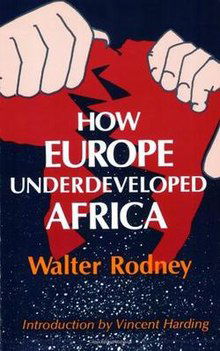
The United Nations Survey of Economic Conditions in Africa up to 1964 had this to say about the continent’s natural resources:
Actually, African potential is shown to be greater every day with new discoveries of mineral wealth. The situation is that Africa has not yet come anywhere close to making the most of its natural wealth, and most of the wealth now being produced is not being retained within Africa for the benefit of Africans.
Zambia and Congo (in the 50’s when this study was conducted) produce vast quantities of copper, but that is for benefit of Europe, North America and Japan. Even the goods and services which are produced inside of Africa and which remain in Africa nevertheless fall into the hands of non-Africans. Thus, South Africa boasts of having the highest per capita income in Africa; but as an indication of how this is shared out, one should note that while the Apartheid regime assures that only 24 white babies die out of every 1,000 live births, they are quite happy to allow 128 African babies to die out of every 1,000 live births.
In order to understand present economic conditions in Africa, one needs to know why it is that Africa has realised so little of its natural potential, and one also needs to know why so much of its present wealth goes to non-Africans who reside for the most part outside of the continent.

In a way, underdevelopment is a paradox. Many parts of the world that are naturally rich are actually poor and parts that are not so well off in wealth of soil and sub-soil are enjoying the highest standards of living. When the capitalists from the developed parts of the world try to explain this paradox, they often make it sound as though there is something ‘God-given’ about the situation.
One bourgeois economist, in a book on development, accepted that the comparative statistics of the world today show a gap that is much larger than it was before. By his own admission, the gap between the developed and the underdeveloped countries has increased by at least 15 to 20 times over the last 150 years. However, the bourgeois economist in question does not give a historical explanation, nor does he consider that there is a relationship of exploitation which allowed capitalist parasites to grow fat and impoverished the dependencies.
Instead, he puts forward a biblical explanation! He says that: ‘It is all told in the Bible:
For unto every one that hath shall be given, and he shall have abundance; but from him that hath not shall be taken away even that which he hath. (St Matthew, xxv, 29.)

The story of the “hath nots” is the story of the modern underdeveloped countries.’
Presumably, the only comment which one can make on that is ‘Amen’. The interpretation that underdevelopment is somehow ordained by God is emphasised because of the racist trend in European scholarship. It is in line with racist prejudice to say openly or to imply that their countries are more developed because their people are innately superior, and that the responsibility for the economic backwardness of Africa lies in the generic backwardness of the race of black Africans.
An even bigger problem is that the people of Africa and other parts of the colonised world have gone through a cultural and psychological crisis and have accepted at least partially the European version of things. That means that the African himself has doubts about his capacity to transform and develop his natural environment. With such doubts, he even challenges those of his brothers who say that Africa can and will develop through the efforts of its own people. If we can determine when underdevelopment came about, it would dismiss the lingering suspicion that it is racially or otherwise predetermined and that we can do little about it.
When the ‘experts’ from capitalist countries do not give a racist explanation, they nevertheless confuse the issue by giving as causes of underdevelopment the things which really are consequences. For example, they would argue that Africa is in a state of backwardness as a result of lacking skilled personnel to develop. It is true that because of lack of engineers Africa cannot on its own build more roads, bridges and hydroelectric stations. But that is not a cause of underdevelopment, except in the sense that causes and effects come together and reinforce each other.

The fact of the matter is that the most profound reasons for the economic backwardness of a given African nation are not to be found inside that nation. All that we can find inside are the symptoms of underdevelopment and the secondary factors that make for poverty.
Mistaken interpretations of the causes of underdevelopment usually stem either from prejudiced thinking or from the error of believing that one can learn the answers by looking inside the underdeveloped economy. The true explanation lies in seeking out the relationship between Africa and certain developed countries and in recognising that it is a relationship of exploitation.
Man has always exploited his natural environment in order to make a living. At a certain point in time, there also arose the exploitation of man by man, in that a few people grew rich and lived well through the labour of others. Then a stage was reached by which people in one community called a nation exploited the natural resources and the labour of another nation and its people.
Since underdevelopment deals with the comparative economics of nations, it is the last kind of exploitation that is of greatest interest here – i.e. the exploitation of nation by nation. One of the common means by which one nation exploits another and one that is relevant to Africa’s external relations is exploitation through trade.

When the terms of trade are set by one country in a manner entirely advantageous to itself, then the trade is usually detrimental to the trading partner. To be specific, one can take the export of agricultural produce from Africa and the import of manufactured goods into Africa from Europe, North America and Japan. The big nations establish the price of the agricultural products and subject these prices to frequent reductions.
At the same time the price of manufactured goods is also set by them, along with the freight rates necessary for trade in the ships of those nations. The minerals of Africa also fall into the same category as agricultural produce as far as pricing is concerned. The whole import/export relationship between Africa and its trading partners is one of unequal exchange and of exploitation.
More far-reaching than just trade is the actual ownership of the means of production in one country by the citizens of another. When citizens of Europe own the land and the mines of Africa, this is the most direct way of sucking the African continent. Under colonialism the ownership was complete and backed by military domination. Today, in many African countries the foreign ownership is still present, although the armies and flags of foreign powers have been removed.
So long as foreigners own land, mines, factories, banks, insurance companies, means of transportation, newspapers, power stations, etc. then for so long will the wealth of Africa flow outwards into the hands of those elements. In other words, in the absence of direct political control; foreign investment ensures that the natural resources and the labour of Africa produce economic value which is lost to the continent.

Foreign investment often takes the form of loans to African governments. Naturally, these loans have to be re-paid; and in the 1960s the rate of repayment (amortization) on official loans in underdeveloped countries rose from $400 million per year to about $700 million per year, and it is constantly on the increase.
Besides, there is interest to be paid on these loans as well as profits which come from the direct investment in the economy. These two sources accounted for the fact that over $500 million flowed outward from the underdeveloped countries in 1965. The information on these matters is seldom complete, for the obvious reason that those making the profit are trying to keep things quiet, so the figures given above are likely to be underestimates.
They are meant to give some idea of the extent to which the wealth of Africa is being drained off by those who invest in, and thereby own, a large part of the means of production of wealth in Africa. Furthermore, in more recent times the forms of investment have become more subtle and more dangerous. They include so-called ‘absentee’ or remote control management of local African companies by international capitalist experts.
Africa trades mainly with the countries of Western Europe, North America and Japan. Africa is also diversifying its trade by dealing with socialist countries, and if that trade proves disadvantageous to the African economy, then the developed socialist countries will also have joined the ranks of the exploiters of Africa. However, it is very essential at this stage to draw a clear distinction between the capitalist countries and the socialist ones, because socialist countries have never at any time owned any part of the African continent nor do they invest in African economies in such a way as to expatriate profits from Africa. Therefore, socialist countries are not involved in the robbery of Africa.

Most of the people who write about underdevelopment and who are read in the continents of Africa, Asia and Latin America are spokesmen for the capitalist or bourgeois world. They seek to justify capitalist exploitation both inside and outside their own countries. One of the things which they do to confuse the issue is to place all ‘underdeveloped’ countries, in one camp and all ‘developed’ countries in another camp irrespective of different social systems; so that the terms ‘capitalist’ and ‘socialist’ never enter the discussion.
Instead, one is faced with a simple division between the industrialised nations and those that are not industrialised. It is true that both the U.S.A. and the Soviet Union are industrialised and it is true that when one looks at the statistics, countries such as France, Norway, Czechoslovakia and Rumania are much closer together than any one of them is to an African country. But it is absolutely necessary to determine whether the standard of living in a given industrialised country is a product of its own internal resources or whether it stems from exploiting other countries.
The United States has a small proportion of the World’s population and exploitable natural wealth but it enjoys a huge percentage of the wealth which comes from exploiting the labour and natural resources of the whole world.
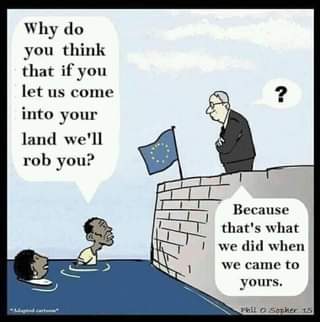
The erroneous views about underdevelopment and the oversimplified distinction between rich and poor nations are opposed by Socialist scholars both inside and outside the Socialist countries. Those erroneous views are also being exposed by economists in underdeveloped countries who are discovering that the explanations offered by bourgeois scholars are explanations which suit the interests of those countries which exploit the rest of the world through trade and investment.
One French Socialist writer, Pierre Jalée, proposes that to obtain a proper perspective of relations between developed countries and underdeveloped ones, two categories should be set up namely, imperialist and Socialist. The Socialist camp include all countries big and small which have decided to break away from international capitalism. The imperialist camp contains not only the capitalist giants like the U.S.A., France, West Germany and Japan but also the weak nations in which those industrial nations have investments.
Therefore the imperialist camp can be sub-divided into exploiting and exploited countries. For the most part, the nations of Africa fall into the group of exploited countries inside of the capitalist/imperialist system. Roughly one-third of the world’s peoples are already living under some form of Socialism. The other two-thirds constitute the capitalist/imperialist camp, with the majority being in the exploited section.
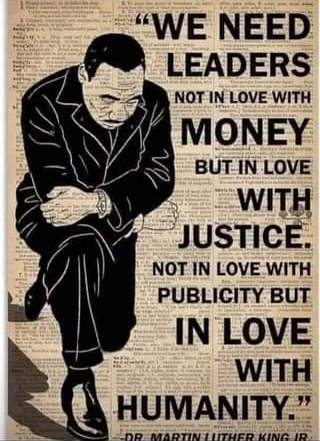
It is interesting to notice that in spite of their efforts to confuse the situation, the bourgeois writers often tip-toe on the truth. For example, the United Nations (which is dominated by western capitalist powers) would never stress the exploitation by capitalist nations, but their economic reviews refer on the one hand to ‘the centrally planned economies’, which means the Socialist countries, and on the other hand they speak of ‘the market economies’ which means in effect the imperialist sector of the world.
The latter is subdivided into ‘the developed market economies’ and ‘the developing market economies’, disguising the fact that the market means capitalist market. This study is concerned with analysing the relations between those countries which are together within the capitalist market system.
The things which bring Africa into the capitalist market system are trade, colonial domination and capitalist investment. Trade has existed for several centuries; colonial rule began in the late 19th century and has almost disappeared; and the investment in the African economy has been increasing steadily in the present century. Throughout the period that Africa has participated in the capitalist economy, two factors have brought about underdevelopment:
In the first place, the wealth created by African labour and from African resources was grabbed by the capitalist countries of Europe; and in the second place restrictions were placed upon African capacity to make the maximum use of its economic potential – which is what development is all about.
These two processes represent the answer to the two questions raised above as to why Africa has realized so little of its potential and why so much of its present wealth goes outside of the continent. African economies are integrated into the very structure of the developed capitalist economies; and they are integrated in a manner that is unfavourable to Africa and ensures that Africa is dependent on the big capitalist countries. Indeed, structural dependence is one of the characteristics of underdevelopment.

Most progressive writers divide the capitalist/imperialist system into two parts. The first is the dominant or metropolitan section and the countries in the second group are often called satellites because they are in the orbit of the metropolitan economies. The same idea is conveyed by simply saying that the underdeveloped countries are dependencies of the metropolitan capitalist economies.
When a child or the young of any animal species ceases to be dependent upon its mother for food and protection, it can be said to have developed in the direction of maturity. Dependent nations can never be considered developed. It is true that modern conditions force all countries to be mutually interdependent in order to satisfy the needs of their citizens; but that is not incompatible with economic independence because economic independence does not mean isolation. It does, however, require a capacity to exercise choice in external relations, and above all it requires that a nation’s growth at some point must become self-reliant and self-sustaining.
Such things are obviously in direct contradiction to the economic dependence of numerous countries on the metropoles of Western Europe, North America and Japan.

It is also true that metropoles are dependent on the wealth of the exploited portions of the world. This is a source of their strength and a potential weakness within the capitalist/imperialist system, since the peasants and workers of the dependencies are awakening to a realisation that it is possible to cut the tentacles which imperialism has extended into their countries.
However, there is a substantial difference between the dependence of the metropoles on the colonies and the subjugation of the colonies under a foreign capitalist yoke. The capitalist countries are technologically more advanced and are therefore the sector of the imperialist system which determined the direction of change.
A striking example to this effect is the fact that synthetic fabrics manufactured in the capitalist metropoles have begun to replace fabrics made from raw material grown in the colonies. In other words, (within certain limits) it is the technologically advanced metropoles who can decide when to end their dependence on the colonies in a particular sphere. When that happens, it is the colony or neo-colony which goes begging cap in hand for a reprieve and a new quota.
It is for this reason that a formerly colonised nation has no hope of developing until it breaks effectively with the vicious circle of dependence and exploitation which characterises imperialism.
At the social and cultural level, there are many features which aid in keeping underdeveloped countries integrated into the capitalist system and at the same time hanging on to the apron strings of the metropoles.

Religion has always been a major instrument for cultural penetration and cultural dominance, in spite of the fact that in many instances Africans sought to set up independent churches. Equally important has been the role of education in producing Africans to service the capitalist system and to subscribe to its values. Recently, the imperialists have been using new universities in Africa to keep themselves entrenched at the highest academic level.
Something as basic as language has come to serve as one of the mechanisms of integration and dependence. The French and English that is so widely used in Africa is more for the purpose of African communicating with the exploiters rather than African with African.
Actually, it would be difficult to find a sphere which did not reflect the economic dependence and structural integration. At a glance, nothing could be less harmful and more entertaining than music, and yet this too is used as a weapon of cultural domination. The American imperialists go so far as to take the folk music, jazz and soul music of oppressed black people and transform this into American propaganda over the Voice of America beamed at Africa.
During the colonial period, the forms of political subordination in Africa were obvious. There were governors, colonial officials and police. In politically independent African states, the metropolitan capitalists have to ensure favourable political decisions by remote control. So they set up their political puppets in many parts of Africa, who shamelessly agree to compromise with the vicious Apartheid regime of South Africa when their masters tell them to do so.

The African revolutionary Franz Fanon dealt scorchingly and at length with the question of the minority in Africa which serves as the transmission line between the metropolitan capitalists and the dependencies in Africa. The importance of this group cannot be underestimated.
The presence of a group of African sell-outs is part of the definition of underdevelopment. Any diagnosis of underdevelopment in Africa will reveal not just low per capita income and protein deficiencies, but also the gentlemen who dance in Abidjan, Accra and Kinshasa when music is played in Paris, London and New York.
Political instability is manifesting itself in Africa as a chronic symptom of the underdevelopment of political life within the imperialist context.
If economic power is centred outside of national African boundaries, then political and military power in any real sense is also centred outside until and unless the masses of peasants and workers are mobilised to offer an alternative to the system of sham political independence.
All of those features are ramifications of underdevelopment and of the exploitation of the imperialist system. In most analyses of this question, they are either left out entirely or the whole concept of imperialism and neocolonialism is dismissed as mere rhetoric-especially by ‘academics’ who claim to be removed from ‘politics’.
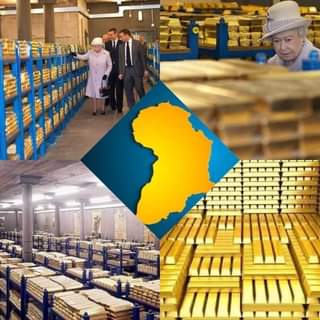
During the remainder of this study, a great deal of detail will be presented to indicate the grim reality behind the so-called slogans of capitalism, imperialism, colonialism, neo-colonialism and the like. For the present moment, the position to be adopted can be stated briefly in the following terms:
The question as to who and what is responsible for African underdevelopment can be answered at two levels. Firstly, the answer is that the operation of the imperialist system bears major responsibility for African economic retardation by draining African wealth and by making it impossible to develop more rapidly the resources of the continent.
Secondly, one has to deal with those who manipulate the system and those who are either agents or unwitting accomplices of the said system. The capitalists of Western Europe were the ones who actively extended their exploitation from inside Europe to cover the whole of Africa.
In recent times, they were joined and to some extent replaced by capitalists from the United States; and for many years now even the workers of those metropolitan countries have benefited from the exploitation and underdevelopment of Africa.
None of these remarks are intended to remove the ultimate responsibility for development from the shoulders of Africans. Not only are there African accomplices inside the imperialist system, but every African has a responsibility to understand the system and work for its overthrow.
